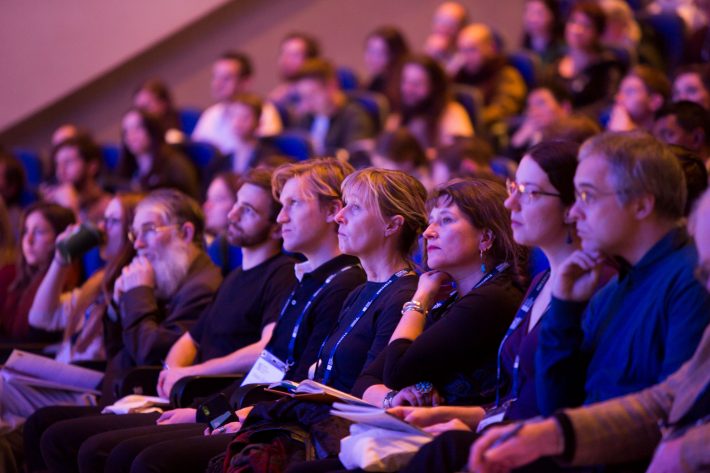Thematic sessions
We are excited to announce the thematic sessions running at BES2022.

Thematic sessions provide a high-profile forum for the discussion of timely, innovative and/or important questions, add local ‘flavour’ to the programme, and showcase integration among disciplines.
The following thematic sessions have now been confirmed for BES2022. Programming details will become available in due course.
Thematic sessions at BES2022
Biocultural landscapes and heritage: reshaping ecology?
Althea Davies, University of St Andrews
Katy Roucoux, University of St Andrews
Most ecology takes place in landscapes shaped by culture, but accommodating cultural voices and values remains a challenge for ecology. This thematic session offers an interdisciplinary perspective on how ecological understandings are being informed, reshaped and co-constructed by working across different cultures, drawing on creative writing, anthropology, sustainable development and history.
BIODEPTH at 25: From basic biodiversity-ecosystem function research to real world applications
Michael Scherer-Lorenzen, University of Freiburg
Christa Mulder, University of Alaska Fairbanks
BIODEPTH was the first multi-national and standardised biodiversity-ecosystem functioning (BEF) experiment. We will ask: How has BEF science fundamentally shifted our understanding of the role of biodiversity? What areas of research are ripe for the inclusion and/or expansion of those ideas? How can we work together to answer the new questions that emerge?
Ecological forecasting – The response of tropical forests to heat and drought
Emma Docherty, University of Leeds
Calil Torres, Universidade do Estado de Mato Grosso (UNEMAT)
Tropical forests play a vital role in the Earth System, yet their continued functioning depends on their resilience to future climates. We synthesize advances in remote sensing, large-scale data-sharing, modelling and experimental approaches being used to understand and forecast the response of tropical forests to heat and drought.
How can we make the 30×30 target work for biodiversity conservation?
Joseph Bailey, Anglia Ruskin University
Daniela Russi, British Ecological Society
This thematic session will discuss the effectiveness, management and monitoring of terrestrial protected areas in the context of the 30×30 target, including the importance of local communities and the impact of climate change. We will include different perspectives from science, policy and practice at a local, national and international scales.
Human-wildlife interactions in the Global South: A lens to navigate, assess and address ecological challenges
Yifu Wang, The University of Hong Kong
Sagarika Phalke, The University of Hong Kong
With a Global South focus, researchers in this thematic session use human-wildlife interactions in diverse social, geographical, and cultural contexts as lenses to analyse and address ecological challenges. The scale of interaction ranges from individual animals to entire ecosystems, providing insights into localised practical solutions and wider-scale applications.
Is complexity important for ecosystem restoration?
Chris Nichols, Woodland Trust
Kirsty Park, University of Stirling
Hosted by the Woodland Trust, this thematic session brings together practitioners, academics and policy-influencers to examine ecological complexity and its importance for ecosystem restoration and nature recovery. Should the conservation community be focusing less on historical baselines and more on future resilience and ecosystem functioning?
Species distribution mechanistic forecasting to overcome climate uncertainty: novel approaches and opportunities
Erola Fenollosa, University of Oxford
Rob Salguero-Gómez, University of Oxford
Future climatic uncertainty demands engineering species distribution models (SDMs) that capture the mechanisms behind species behaviour: mechanistic SDMs. This thematic session presents avant-garde approaches to mechanistic SDMs, including recent advances in how to estimate species’ fundamental niches, spatio-temporal complexities, biotic interactions, range-edge processes, and high data demands.
Using historical specimens in conservation genetics
Evelyn Jensen, Newcastle University
Ian Barnes, Natural History Museum
Museum collections are a well-recognised resource for biological conservation and recent technological developments are finally enabling us to make significant use of the genetic information they hold. This thematic session explores how DNA from museum specimens is helping us understand global biodiversity patterns and highlights some of the valuable contributions being made to conservation.
Like what we stand for?
Support our mission and help develop the next generation of ecologists by donating to the British Ecological Society.